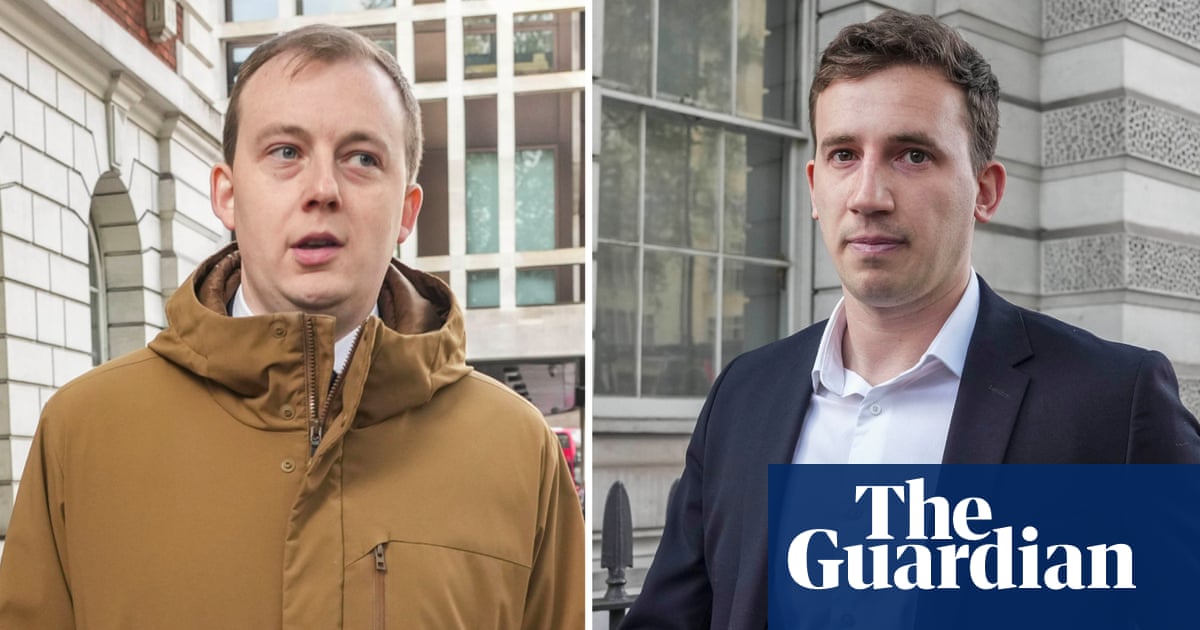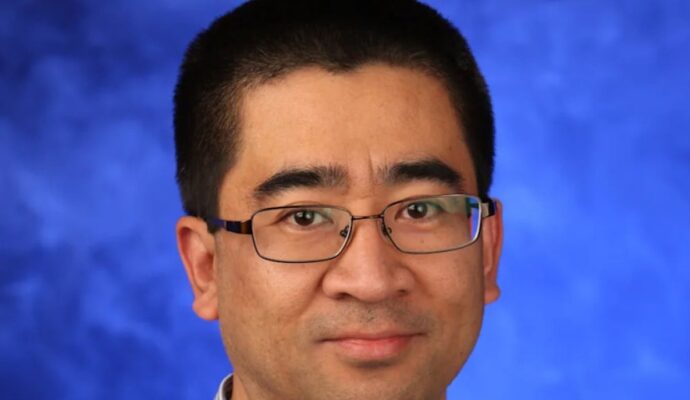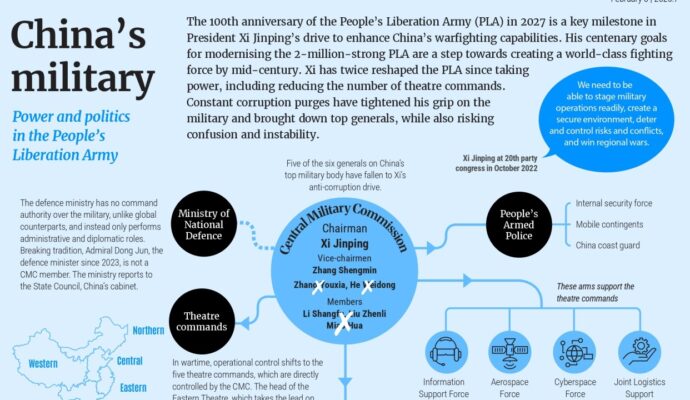
Legal experts have questioned the explanation given by the Crown Prosecution Service for its sudden decision to drop charges against two Britons accused of spying for China amid a political row over who was responsible.
The expert lawyers expressed surprise that the CPS thought it needed further assurance from the government that China was an enemy insofar as it posed “a current threat to national security” before the trial of Christopher Cash and Christopher Berry could go ahead.
The former director of public prosecutions Ken Macdonald said in a BBC interview that he believed Stephen Parkinson, the current DPP, may have been “over-fussy” in demanding the government “make a statement in open court that would be embarrassing in some ways to British national interests”.
Nick Vamos, a former lawyer at the CPS and partner at Peter and Peters, said he believed prosecutors had probably “messed up” either when charging Cash and Berry in April 2024 or when they abandoned the case last month. “I cannot fathom what about this case has changed,” he said.
Cash, a former parliamentary researcher to the Conservative MP Alicia Kearns, and his friend Berry had been due to go on trial this month in a high-profile case that would have been a test of the UK’s delicate relationship with China. Both men had denied the charge of spying in breach of the 1911 Official Secrets Act.
They had been accused of spying between 2021 and early 2023, when the Conservatives were in power. The CPS abandoned the prosecution last month having failed for months to obtain the further assurances it sought when Labour was in charge.
Labour and the Conservatives blamed each other. Keir Starmer, the prime minister, on a visit to India, said “we were disappointed that the trial didn’t proceed” but added that a prosecution would have had to take place “on the basis of the situation as it was at the time under the previous Tory government”.
The Conservative leader, Kemi Badenoch, said: “Labour deliberately collapsed the trial of two men accused of spying on MPs for China, because the prime minister wants to suck up to Beijing.”
On Tuesday, Parkinson had tried to explain why the case was unexpectedly dropped. He argued there had been a change in the case law between the initial decision to charge Cash and Berry that required the CPS to demand further information from the government to support the assertion that China represented a threat to UK national security.
Parkinson was referring to a ruling in a separate spying case, of six Bulgarians accused of spying for Russia, which changed the legal definition of an enemy, a critical requirement for any successful prosecution under the 1911 Official Secrets Act. The 1911 act says that a person is guilty of espionage if they acted in a manner “prejudicial to the safety or interests of the state” and passed on information that might be “directly or indirectly useful to an enemy”.
In the clarifying ruling, made in July last year, Dame Victoria Sharp said: “There is no reason in our view why the term ‘an enemy’ should not include a country which represents a current threat to the national security of the UK.”
Macdonald said he understood Sharp’s ruling had “set lower” the bar for an espionage prosecution, while Vamos said “this case changes nothing” and that it “expands the definition of an enemy from a country the UK is about to go to war with, to a country that is considered to be a national security threat”.
after newsletter promotion
Spy chiefs have repeatedly described China as a national security threat to the UK in the past. Two years ago, the MI5 chief, Ken McCallum, accused Beijing of engaging in espionage on an “epic scale” by trying to steal commercial information by posing as recruiters on LinkedIn.
Parkinson complained that the government would not say as much in witness statements provided to the court by Matthew Collins, the deputy national security adviser, as part of the prosecution of Cash and Berry.
Gavin Millar KC, a barrister with Matrix Chambers, said he believed the government did not want to detail China’s threat to UK national security in this particular case. “The latter can be very awkward and embarrassing for the state to do in open court,” he said.
Prosecutors should also have believed the enemy test was met when Cash and Berry were charged, meaning that the evidence was already available in the form of a witness statement from the government. Vamos said: “You can’t have a draft statement or a promise, you have to have it to hand.”
He added: “Either the CPS misunderstood the evidential requirements in the first case, at the time of charging, that they didn’t need to prove that China was an enemy and that the jury could infer it from the news and public statements made by ministers and officials. Or they didn’t have the evidence, and just misunderstood what they needed.”

